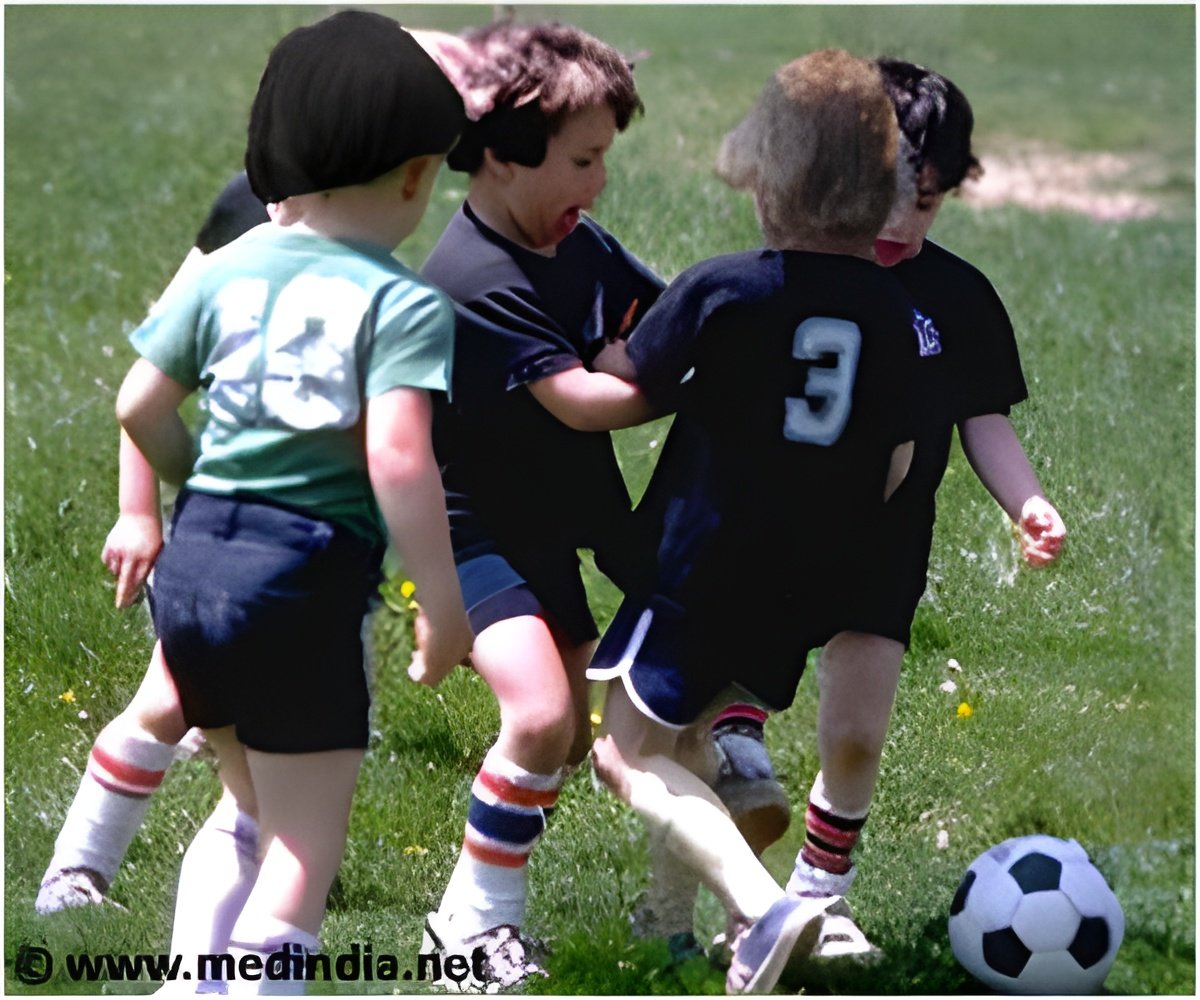Intense exercise including ball games and circuit strength training in the timetable improves bone and muscle health in schoolchildren.

‘Eight to ten-year-old schoolchildren develop stronger bones, increased muscular strength and improved balance when ball games or circuit training are on the timetable.’





In the study, the researchers compared the effects on children who took the normal school PE classes with children who had intense exercise on the timetable for two hours a week in the form of ball games on small pitches or 'circuit training' consisting of gymnastic and strength exercises using their own body weight. Strong bones in children prevent osteoporosis later in life
"Our research shows that intense exercise at school has clear positive effects on bone density, muscular strength and balance in 8-10-year-old children," says the project leader Peter Krustrup, Professor of Sport and Health Sciences at the University of Southern Denmark.
"In the children in third grade who played ball games three against three or participated in circuit training for 3 x 40 minutes a week, muscular strength increased by 10% and balance improved by 15%, while the children's bone density increased by a whole 45% compared to the control group. These types of sports are great ways for children to "put bone in the bank".
Malte Nejst Larsen, Assistant Professor at the University of Southern Denmark, adds: "The study shows that bone density in the ball-game group rose by 7% in the legs and by 3% in the body as a whole, giving a real boost to bone health. Exercise in school for children aged 8-10 which improves bone density, muscular strength and balance is the first big step towards preventing osteoporosis later in life," he says.
Advertisement
FIT FIRST stands for 'Frequent Intense Training - Football, Interval Running and Strength Training'.
Advertisement
The project was run in a partnership between the Copenhagen Centre for Team Sport and Health at the University of Copenhagen, Gentofte Hospital and the municipality of Frederikssund, with financial support from the Nordea Foundation (Nordea-fonden), the Aase and Ejnar Danielsen Foundation, Augustinus Fonden, FIFA's research unit F-MARC, the Danish Football Association (DBU), Team Denmark, the Sports Confederation of Denmark (DIF) and the Danish Ministry of Culture.
Source-Eurekalert















